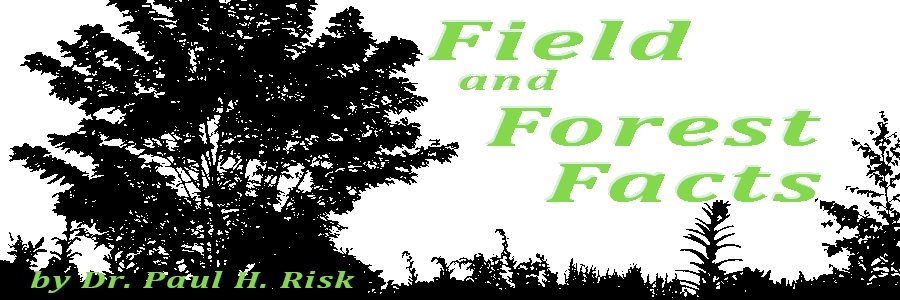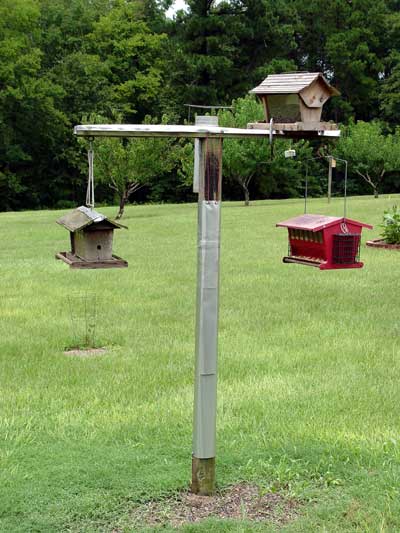RiskVA
Thieving Varmints – Squirrels, Raccoons, and Deer 19 Mar 2014
We have an ongoing war with squirrels, raccoons, and deer when they push the limits on our hospitality. Birds and various other critters know that we have a well-stocked feeder in the backyard. Birds are fine, but other animals are less welcome. And don’t even get me started about these varmints when they eat our fruit and pecans. I’ll rant about that during the summer.
Squirrels are high on my list of unwelcome poachers. I know they are kinda cute, especially when they stand on their hind feet and munch a morsel. But they are also brazen characters. Given half a chance, they will clean out a bird feeder even if they have to hang upside down to do it. Apparently they know there is a hunting season for them and they can’t be shot – legally – at any other time of the year. The only real control suggestion I know of is to blaze away at them during open season in an effort to reduce their population. But, the little tree rats breed prolifically and probably invite all their distant relatives to come feast, so even that may be a losing battle. And by the way, you can’t discharge a “far-arm” inside the city limits. It upsets neighbors – and Peace Officers. Some people say they wire rat traps baited with peanut butter to their bird feeder post. Technically, that’s not legal either.
Raccoons, of course, are famous thieves. They even wear masks to protect their identity, although after a lot of practice and careful observation I can usually recognize them in spite of their disguise. ‘Coons can climb most anything, and in our case they not only eat our fruit, but also decimate the bird feeders. They climb up and break the feeders to get at the seed. A single night of raccoon visits to our feeders will completely clean them out. Then during the day, the pesky squirrels take over.
To further compound the problem, deer get into the act. They know we never shoot them so over the years they’ve come to regard our backyard as a private feed plot, which was perfectly fine as long as they limited themselves to grass. They would munch away even when we were in the yard unless I huffed at them like an enraged buck. But when they started chomping on tender new fruit tree shoots and newly planted pecan tree tips, my sense of compassion wore a little thin. We finally stopped that depredation by adorning each tree with tattered white plastic bags from a local retail outfit “whose-name-must-never-be-spoken,” but whose partial initials are WaMa. Personally I’m convinced that the corporate emblem on them scares them off. But maybe the bags just wave in the breeze and frighten them. Anyway, they work.
But when Bambi and his relatives found they could smack the bird feeders around, break them and spill the seed on the ground to get a meal I got a little tense. They would stand up and brace themselves by resting their front legs on top of the wooden cross piece from which the feeders hang. That gave them better leverage. They are far from stupid.
Our final solution for the bird feeders was to staple sheet aluminum on top of the cross-arm and the support post. Then a $20 electric fence charger was connected to the metal parts. Zap! The first night after our little electrical surprise was put into action there was a single muddy raccoon track on the lower metal sheath and no lost seed or feeder damage. Next night another footprint appeared on the other side of the post. Pow! No damage. Some deer scuff marks on top of the metal-covered crosspiece showed up once too, but no damage. The squirrels don’t like it either and none of these critters – squirrels, ‘coons, or deer – have tried the feeder heists again. I don’t know if you’ve ever touched an electric fence, but let me tell you, once is enough. Ours puts out pulses of current once a second and it really smarts. Birds are not disturbed by it for the same reason they can sit on high voltage power lines. Their feet aren’t touching ground.
The bottom line around our spread isn’t “Don’t Mess With Texas,” it’s “Don’t Mess With My Feeders and Fruit!” Tune in later for reports on the electric fruit and pecan trees this summer and fall.
Dr. Risk is a professor emeritus in the College of Forestry and Agriculture at Stephen F. Austin State University in Nacogdoches, Texas. Content © Paul H. Risk, Ph.D. All rights reserved, except where otherwise noted. Click paulrisk2@gmail.com to send questions, comments, or request permission for use.

